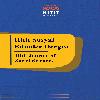Bilimselliğin Kriteri ve Sınırları Problemi - Bilim, Bilim Olmayan ve Sahte Bilim
Bu makale, bilim felsefesi edebiyatında “bilimin sınırları problemi” denen sorunu ele almaktadır. ?Bu çerçevede şu sorulara cevap aranmaktadır: bir metni, bir teoriyi, bir araştırmayı bilimsel ?yapan şey nedir? Bilimi ve bilimsel olanı metafizik öğretilerden, ideolojilerden, sahte-bilimden ve ?komplo-teorilerden nasıl ayırt edebiliriz? Makalede bu soruların cevabı incelenirken mantıkçı ?pozitivistlerin tümevarımcı bilim yöntemleri, Popper’ın tümdengelimci bilim yöntemi, T. Kuhn’un ?boz-yap çözebilme yeteneği olarak bilim anlayışı, I. Lakatos’un bir araştırma programı olarak ?bilim anlayışı öncelikle ele alınmıştır. Ardından bu konudaki yeni gelişmeler ele alınmış ve çoklu ?bilimsellik kriterleri incelenmiştir. Son olarak makale, bir şeyi sahte-bilim yapan nitelikler üzerin-?de durmaktadır.?
Anahtar Kelimeler:
Bilimsellik, sınırlar sorunu, sahte-bilim, bilimselliğin kriterleri.
The Criteria of Science and Problem of Demarcation - Science, Non-Science and Pseudo-Science -
The article deals with the demarcation problem in the philosophy of science. In this context, it ?looks for answers to the following questions: What makes a text, a theory or a research scien-?tific? How can we demarcate science and scientific from metaphysical thoughts, ideologies, ?pseudo-sciences and conspiracy theories? Those questions are discussed around the views of ?some modern philosophers. In this context, first of all the article deals with logical positivists and induction as their scientific method, Popper and deduction as his scientific method, T. Kuhn and his view of science as puzzle-solving skill, I. Lakatos and his view of science as research programmes. Then the article examines recent views on demarcation problem and evaluates multi criterion views about what makes something scientific. Finally the article seeks to give answer to ?the question what makes something pseudo-scientific.
Keywords:
Scientific, demarcation problem, pseudo-science, criteria of science.,
___
- Aristoteles, Metafizik, çev.: Ahmet Arslan, 2. Basım, Sosyal Yayınları, y.y., IV. Kitap, 1996,
- --------, Orgonon IV: İkinci Analitikler, çev.: H. Ragıp Atademir, Kültür Bakanlığı Yay., Ankara, 1996.
- Bryan Magee, Karl Popper’ın Bilim Felsefesi ve Siyaset Kuramı, çev.: Mete Tunçay, 2. Baskı, Remzi Kitabevi, yy., 1990.
- el-Gazzali, Ebu Hamid, el-Munkızu mine’d-Dalâl (Mecmuatu Resail el-İmam el-Gazzali içinde) cilt: 7,Darül’-Kütübü’ül-İlmiyye, Beyrut 1988.
- Feyerabend, Paul, Özgür Bir Toplumda Bilim, Türkçeye çev.: Ahmet Kardam, Birinci Basım, Ayrıntı Yayınları, İstanbul 1991.
- Fitelson, Branden, “Inductive Logic”, The Philosophy of Science, An Encyclopedia, ed. by Sahatro Sarkar, Jessika Pfeifer, Routledge, New York, London 2006.
- Gattei, Stefano, Karl Popper’s Philosophy of Sciences: Rationality Without Foundations, First published Routledge, New York- London, 2009.
- Hansson, Sven Ove, “Cutting the Gordian Knot of Demarcation”, International Studies in the Philosophy of Science, October 2009, vol. 23, no: 3.
- --------, “Science and Pseudo-Science”, (First published 3. Sep. 2008). Stanford Encyclopedia of Philosophy, Principal Editor: Edward N. Zalta, Stanford University, Stanford, 2008: http://plato.stanford.edu/entries/pseudo -science
- Kant, Immanuel, Arı Usun Eleştirisi, çev.: Aziz Yardımlı, İdea Yayınları, İstanbul 1993.
- Kuhn, Thomas S., “The Sciences As Puzzle Solving Traditions”, in Conceptions Of Inquiry A Reader, Ed. by Stuart Brown, John Fauvel and Ruth Finnegan, Routledge and The Open University Press, 1981.
- Lakatos, Imre, “Science And Pseudo-Science”, Conceptions Of Inquiry: A Reader, (Ed.) Stuart Brown, John Fauvel and Ruth Finnegan, Routledge and The Open University Press, yy., 1981.
- Martin Mahner, “Demarcating Science From Non-Science”, General Philosophy of Science, Focal Issues,Ed. by Theo A. F. Kuipers, Elsevier Publications, Amsterdam, Oxford, 2007.
- Nickles, Thomas, “Problem of Demarcation”, The Philosophy of Science, An Encyclopedia, ed. by Sahatro Sarkar, Jessika Pfeifer, Routledge, New York, London 2006.
- Popper, Karl, “Reply to My Critics”, The Philosophy of Karl Popper, ed. by P.A. Schilpp, The Library of Living Philosophers, vol xiv, book ii, Open Court, La Salle 1974.
- --------, The Logic of Scientific Discovery, Routledge Classics, London, New-York, 200.
- --------, Bilimsel Araştırmanın Mantığı, çev.: İlknur Aka, İbrahim Turan, Yapı Kredi Yayınları, İstanbul 1998.
- --------, Conjectures and Refutations: The Growth of Scientific Knowledge, New York: Basic Books,1962.
- Thagard, Paul R., “Why Astrology is a Pseudo-Science?”, Introductory Readings in The Philosophy of Science, ed. by E.D. Klemke, Robert Hollinger vd., third edition, Prometheus Books, New York 1998.
- --------, Computational Philosophy of Science, The MIT Press, Cambridge, Massachusetts, London 1988.
- ISSN: 2757-6957
- Yayın Aralığı: Yılda 2 Sayı
- Başlangıç: 2020
- Yayıncı: Hitit Üniversitesi
Sayıdaki Diğer Makaleler
Farabi Felsefesinde Bazı İlahi Sıfatların Hürriyet Problemi Açısından Analizi
Hz. Muhammed’e Saygısızlık Girişimleri Karşısında Son Osmanlı Yönetimi
Tasavvufî Terbiyede Rüyânın Değeri
Bilimselliğin Kriteri ve Sınırları Problemi - Bilim, Bilim Olmayan ve Sahte Bilim
Fahruddîn er-Râzî ve Necmüddîn el-Kazvînî’nin Zihnî Varlığa ve Bilginin Tabiatına Yaklaşımları
Michael Sandel’in Yükümsüz Ben Eleştirileri ve Deontolojik Liberal Adaletin Sınırları
Kirman Meliki Kavurd Bey’in Büyük Selçuklu Tahtını Ele Geçirme Teşebbüsleri
